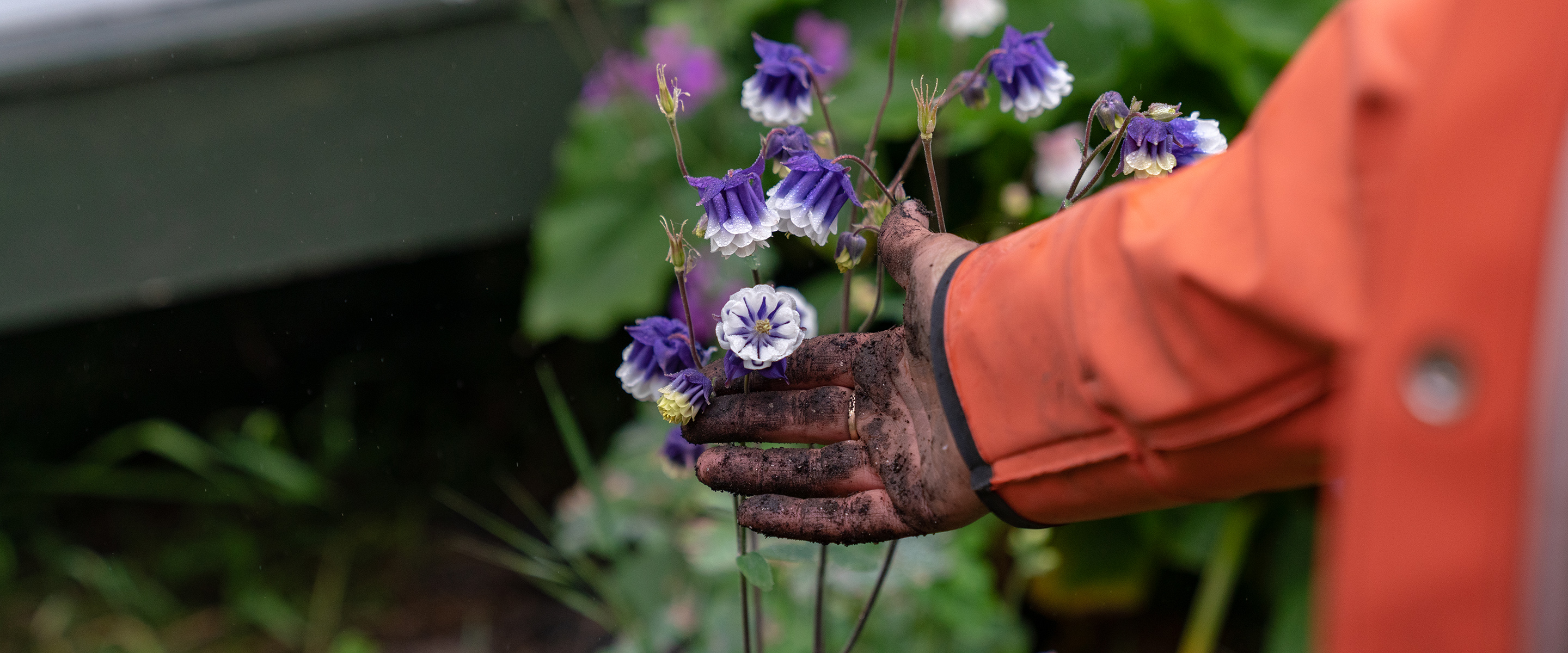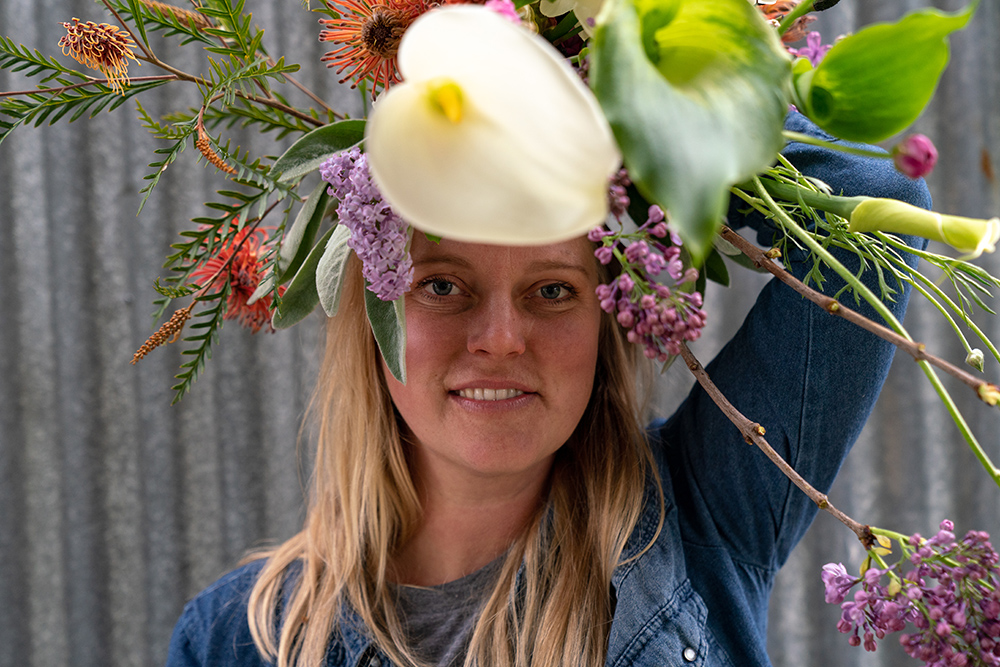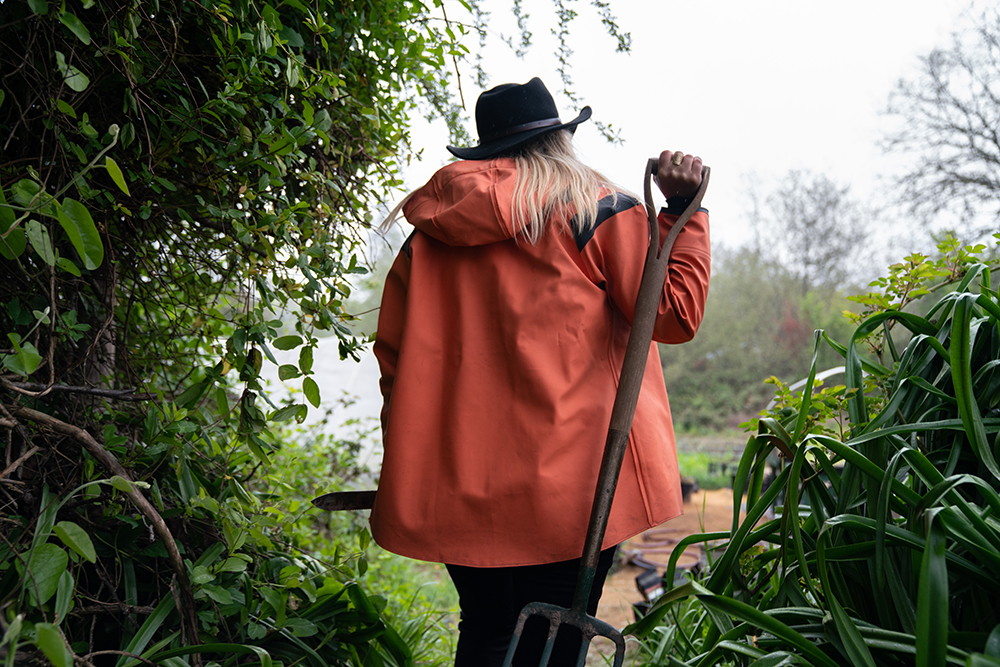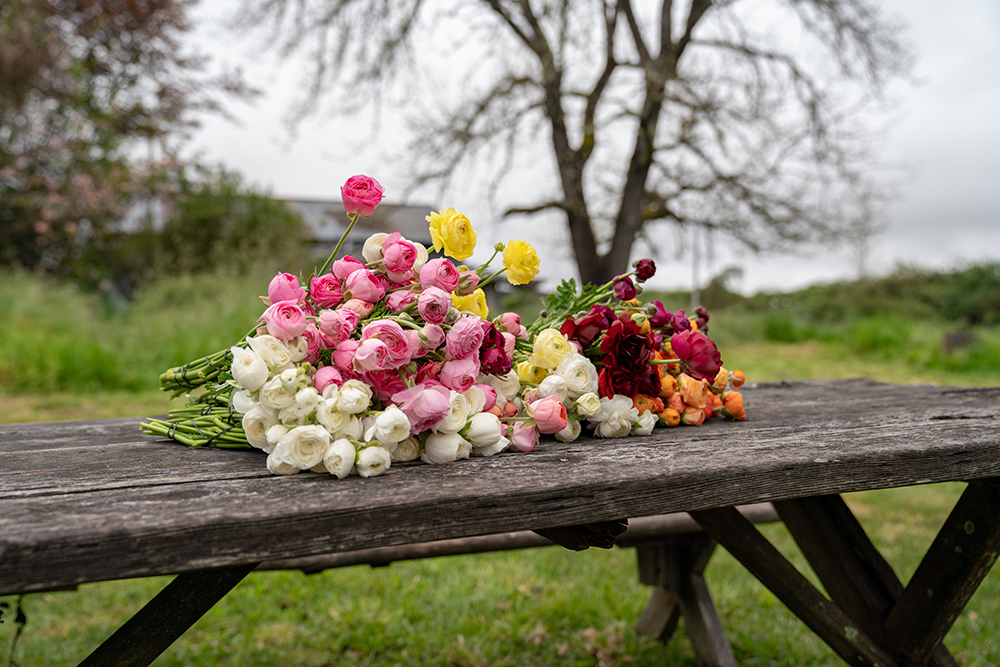"I can distinctly remember talking to plants. I think I was about five when I realized I actually had relationships to them," reflects Hedda Brorstrom of Full Bloom Flower Farm in Northern California. "I would be having these conversations in my head with this other living being, and it would be responding to me. It's always been like that." Hedda's mysticism combines seamlessly with the quotidian grit of a professional farmer. As she talks to me, she checks irrigation, cuts a few overlooked blooms, and scans the fields. I can almost see her ticking boxes in her brain, going over the ever-growing to-do list. "The way for me to be a really good farmer is I just listen to my intuition. If I ignore my intuition, things go poorly."
Full Bloom is entirely chemical-free and is one of only a small handful of no-till flower farms in the US.
She moves confidently through her fields, bending to plant tiny transplants of a flower mix called 'Hedda's Special Blend' into the soil. "Look at all these worms!", she exclaims with childlike exuberance, presenting me with a palmful of the wrigglers. While this land was literally once her family's worm farm, today's abundance of them speaks more to Hedda's farming practices. Full Bloom is entirely chemical-free and is one of only a small handful of no-till flower farms in the US. This is a stark contrast to the majority of cut flower production, which relies heavily on fungicides and herbicides to meet the industry's expectations of perfection.
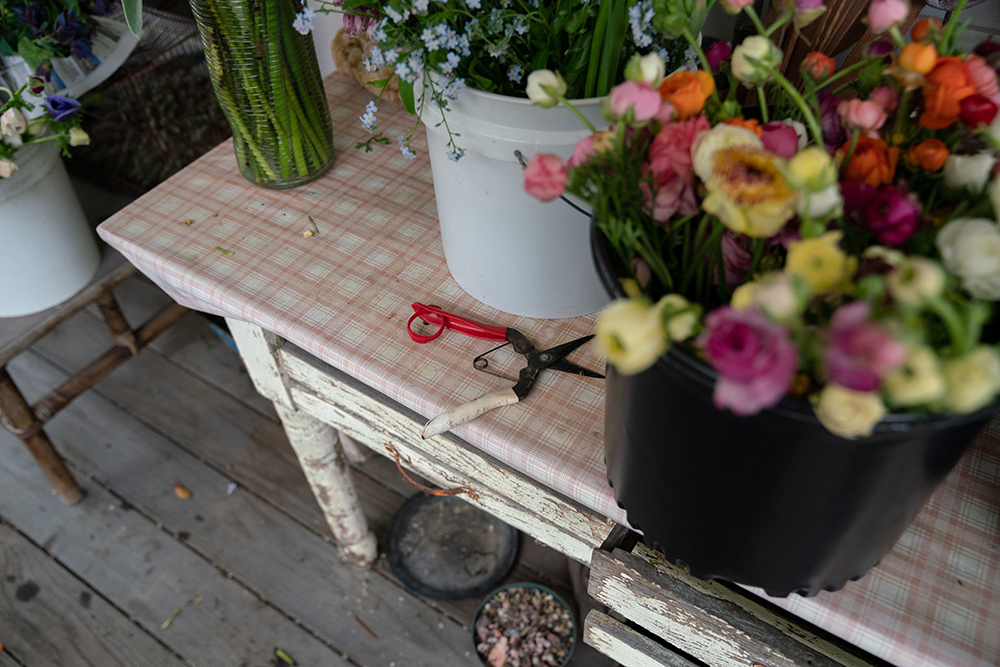
Brorstrom's shears, used to cut and tweak flower arrangements on the porch of her family farmhouse in Sebastopol, California.
The spring rain mists around us as we walk through her intensive one-acre farm. Most of the plants are currently bare due to the season or because their blooms have been snipped and carefully stuffed into buckets now lining the porch of her childhood home behind us. Hundreds of flowers cheerily mingle together, waiting to be claimed by local restaurants, florists, grocery stores, and a few lucky individuals.
Soon the farm will be unrecognizable. Today's transplants will tower overhead, covered in pollinators. In summer, Hedda wades chest-high through flowers with over 200 varieties occupying every spare bedfoot - and all of her time.
While it sure looks dreamy on Instagram, Hedda stresses, "Flower farming is really, really, hard. I don't think people fully understand that. To choose this work, you have to either be naive, have an extreme work ethic, or be so passionate you literally just can't not be growing them."
Flower farming is really, really, hard.
The challenges take many forms: razor-thin margins, unpredictability of weather, inherent physicality, stress, limited educational resources for organic and higher financial risks associated with growing speciality flowers. Just this winter Hedda lost $10,000 worth of future Ranunculus because of bad compost, a loss of seed incomparable in vegetable farming.
And yet, Hedda successfully runs not one, but three businesses as a farmer-florist-herbalist. She chalks this up to her commitment to cultivating diversity - whether it be among her plants or her markets - as well as being very, very stubborn.
With Full Bloom's founding six years ago, Hedda got her start at the precipice of the 'Slow Flower Movement'. Complete with its own manifesto and a fresh wave of local flower farmers, it parallels the US food movement with similar calls to get small, buy local, be seasonal, and even to decolonize your flower.
Yet the US floral industry is experiencing growing pains similar to what local, organic food went through decades ago. It remains largely male-dominated; consumer education is still sorely lacking; greenwashing is increasing; and the complex beast of globalization creates deep challenges for international and local growers alike. "The floral industry is definitely part of agribusiness," Hedda sighs. While local flowers are increasingly available, 80% of the cut flowers sold in the US are still shipped from overseas, wrapped in plastic, and fumigated upon arrival. "When I see people stick their faces into a bouquet, it's crazy to me they haven't made that connection."
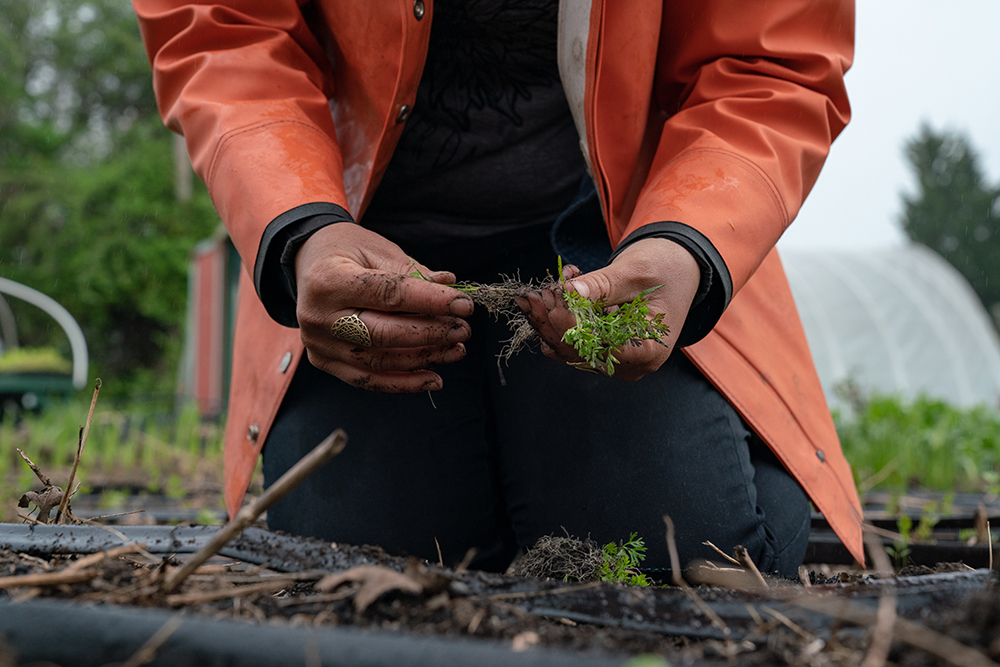
Brorstrom, who founded Full Bloom at the start of the Slow Flower Movement, separates tiny flower transplants which by summer will tower overhead.
She also references the Andean Trade Preference Act from the 1990's, which waved duties for various South American imports, particularly flowers. The surge of cheap imported flowers caused nearly half of North American growers to disappear.
Within this challenging context the Slow Flower Movement continues to take root. Hedda is contributing to the movement's longevity by building solidarity and sustainability for her profession through community. "In 2014 I helped start The North Bay Flower Collective, a group of dedicated farmers and florists who meet to share, educate, and inspire each other. It's critical to have allies and support from the local agricultural community." The Collective has grown and been replicated in places like New York and Sacramento. "It's hard running a business, no matter what. The Collective has a very intentional motto of 'Collaboration over Competition'. It's the best part of farming, honestly, because it's been the source of so many friendships."
I really believe that flowers are there for the things for which we don't have words.
Yet since flowers are still deemed a luxury crop, I wonder: are they worth the adversity?
Hedda shakes her head at me. "Like art, for many people it's essential to have flowers in their lives. They've been in human culture forever. They are ritualistic and representative of so much. For instance, why do we have flowers at death? I really believe that flowers are there for the things for which we don't have words - not that we don't know what to say or that we're unable to say it - but for things that we don't even have the language for. So they're not really a luxury. They're a necessity."
I'm struck by how flowers speak for us, adorning the ceremonies that punctuate our lives: birthdays, apologies, weddings, loss. And people like Hedda are the increasingly-visible liaisons. "A lot of being a farmer-florist is being the person hired to have human relations with other people through plants. If you're out harvesting for a certain occasion, and you let yourself get quiet, the plants kind of call to you. You can really feel which plants are ready to go with a certain person. You can feel those relationships happening, each person connected to our different plants."
And while flower farming may be hard, it's that magic that keeps Hedda going: "Every day I have my breath taken away."
Katie Brimm is a freelance writer based in Sebastopol, CA. She ran an international, solidarity travel program bringing people to the frontlines of the global Food Sovereignty movement and has now worked for over a decade in the international and local food movement in various roles including researcher, writer, activist, nonprofit educator and storyteller. She is passionate about resilience, justice and joy. Katie finds balance by getting her hands dirty as a no-till farmer and recently started a Flower CSA at Singing Frogs Farm. You can find her on Instagram @katiebrimm or at mesaprogram.org/about/
Michael A. Estrada is a Salvadoran-American photojournalist and artist. His work falls at the intersection of media, environmental justice, art, and the representation of BIPOC in nature. Between travels, he drinks a fair amount of boba and bikes/swims/runs as much as possible under the sun. Learn more at aemichael.com.









